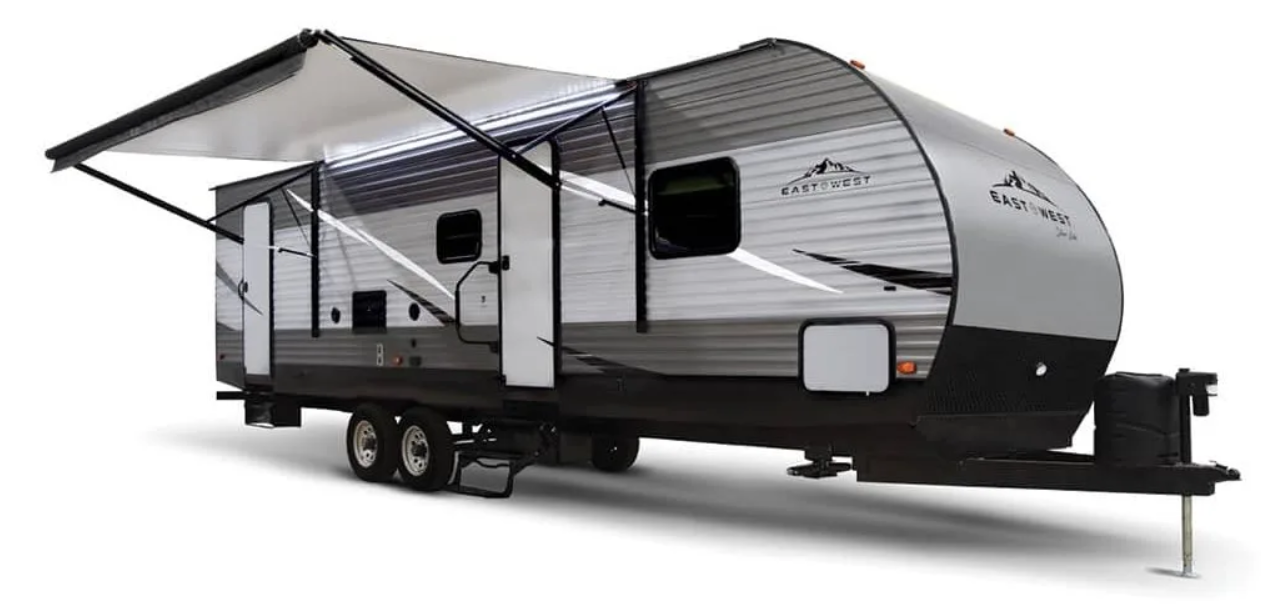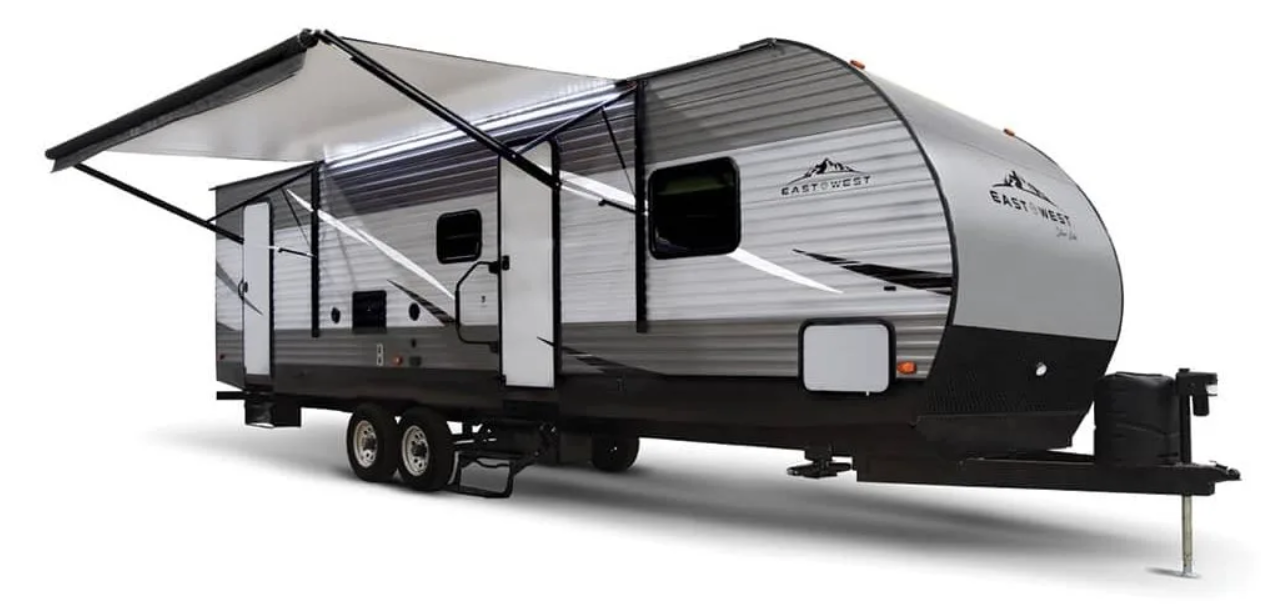
2021 East to West Silver Lake TRAVEL TRAILERS120VAC Electrical System

120VAC Electrical System
The 120VAC power is most commonly provided to your recreational vehicle by either connecting the RV to an outside power source when parked or by using an RV generator. When the 120VAC system is operational, power also passes through a system power converter, allowing the full use of all 12VDC functions in the RV. Some 120VAC functions in the RV may include:
- Residential refrigerator
- Ice maker
- Roof-mounted air conditioner(s)
- Television(s)
- Microwave
- Converter
- Electrical outlets
- Some lights
- DVD and most multi-media
When not connected to 120VAC power, the 12VDC system functions can be supplied by the battery. Batteries are recharged by the power converter when the RV is attached to an outside 120VAC power source or by the generator. (Be sure you turn the power switch ON; the generator will not charge the batteries or otherwise operate when the power switch is in the OFF position.) If equipped, an on-board inverter can also supply limited 120VAC power by utilizing, and converting the on-board batteries’ 12VDC power. See the inverter section of this manual for details.
NOTICE
Prior to supplying 120VAC power to the RV (generator or shore power), make sure all 120VAC appliances are turned OFF.
GROUND FAULT CIRCUIT INTERRUPTER
The 120VAC outlets in some possible wet locations are equipped with a protective circuit interrupter. The ground fault circuit interrupter (GFCI) is designed to break the flow of current to the protected outlet when an imbalance of current is detected. Imbalances include electrical leakage in an appliance, such as a shaver or hair dryer, that has developed a weak spot in electrical insulation. The possibility of electrocution exists when using a faulty appliance while at the same time being in contact with an electrical ground, such as water, plumbing, or the earth. If an imbalance is detected, the GFCI will trip and shut off power to the outlet. Even with GFCI protection, the electrical shock will still be felt, but to a lesser degree. It also does not protect against short circuits or system overloads. Circuit breakers in the main panel, which supply power to the circuit, will trip if either of these conditions exists. The GFCI receptacle should be tested initially when the recreational vehicle is purchased and at least monthly thereafter.
To test the circuit, use the following procedure:
- Make sure the power to the circuit is ON.
- Push the test button.
- The reset button should pop out.
- All power should be interrupted to outlets protected by the GFCI.
- Verify by pushing the reset button. If the button does not pop out after pushing the test button or the GFCI circuit continues to trip, immediately turn OFF the power at the circuit breaker panel and have a qualified electrician service it.
DANGER
Even with GFCI protection, persons with severe heart or other health problems may still be seriously affected by an electrical shock. The GFCI outlet is not a substitute for good electrical safety.
CIRCUIT BREAKERS
The 120VAC system is protected by circuit breakers. These breakers automatically trip if the circuit load is too heavy or a short circuit occurs. If a circuit breaker has been tripped, do not reset the breaker until the cause of the problem is identified and corrected. Once the cause has been identified and corrected, allow for a brief cooling period and then move the breaker to the OFF position and then back to the ON position to reset. If the breaker is continually tripped and no overload is evident, have the system checked for a short in the wiring or the appliances.
PARK FUSES AND BREAKERS
Most campgrounds are equipped with a fuse or circuit breaker at the receptacle. It is recommended to shut OFF this circuit breaker before engaging or disengaging the power cord. This protects the park’s wiring, as well as the power cord on your vehicle from electrical damage. If electrical power fails, contact the park attendants and have them check the fuse or breaker for your supply receptacle.
BASIC TROUBLESHOOTING TIPS
No power to kitchen, bath, or outside receptacle:
- Make sure RV’s battery disconnect is ON.
- Check circuit breakers at RV’s power center. The 120VAC circuit breaker may be OFF or tripped.
- Check park electrical hook-up for power or a tripped breaker.
- GFCI receptacle may be tripped and requires a reset.
- Electrical circuits may be overloaded with excessive appliances causing breakers or GFCI to trip.
